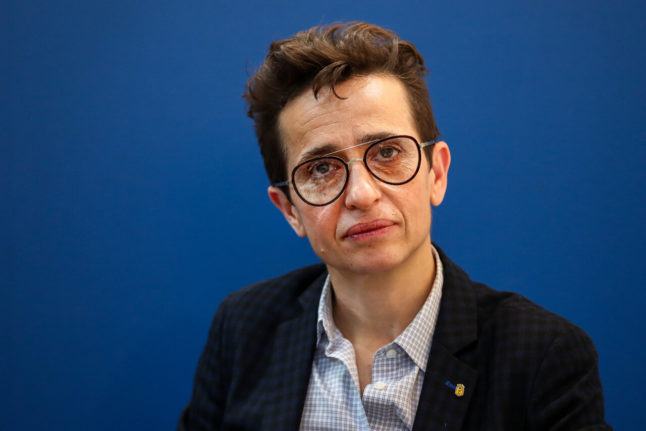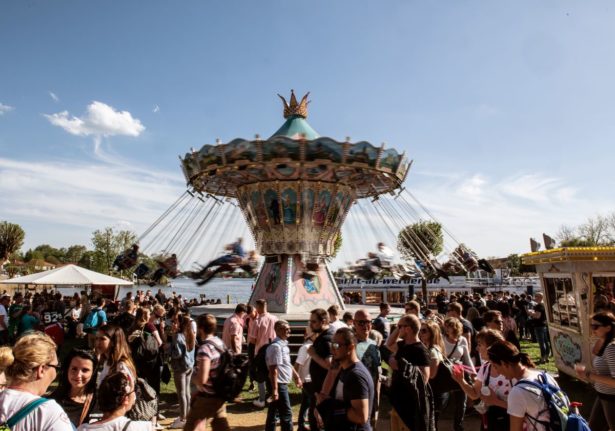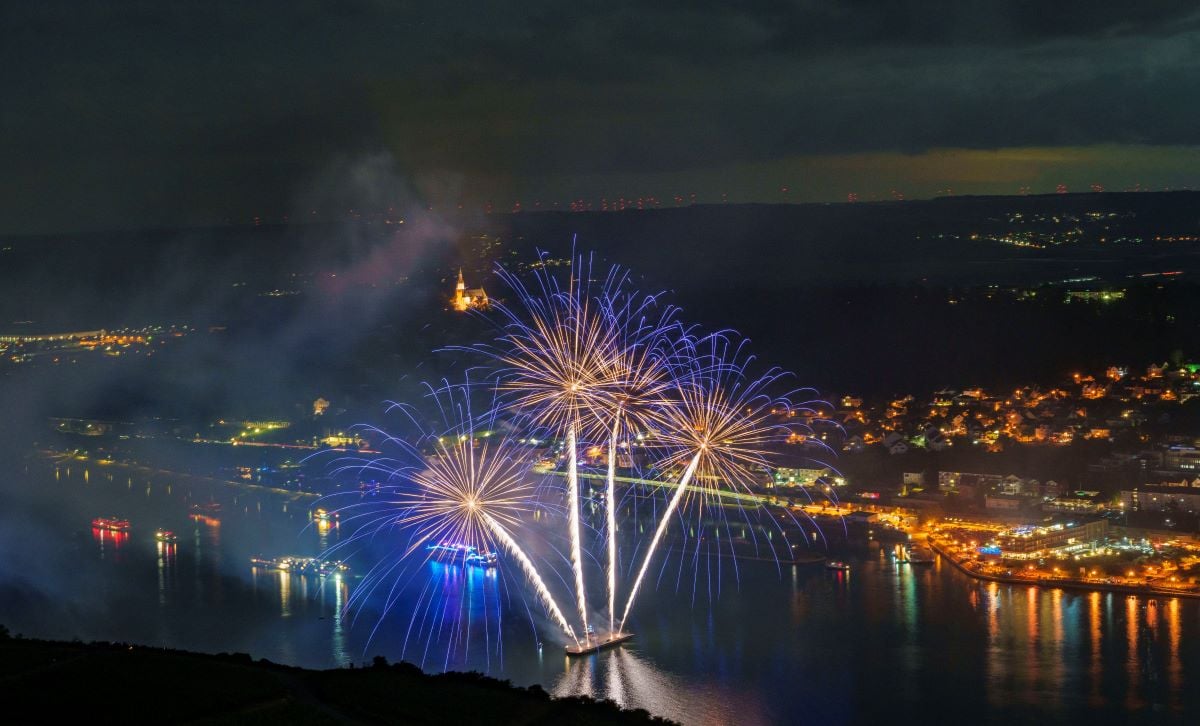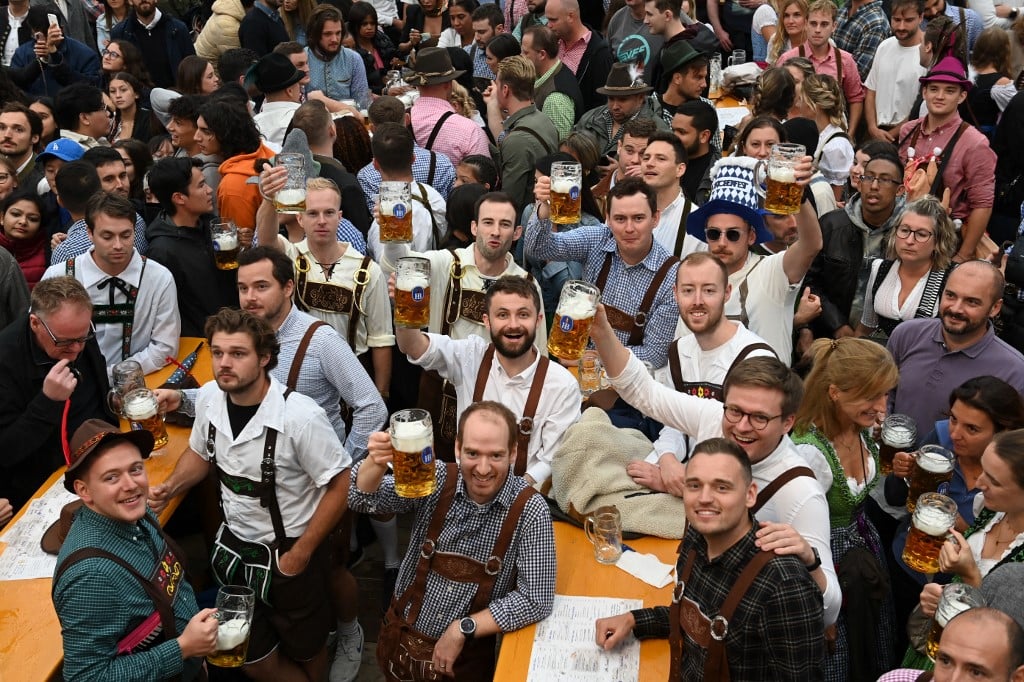Artist Candice Breitz worked for several years to set up an exhibition in the German city of Saarbrücken, only for it to be cancelled over her stance on the Israel-Hamas war.
The trend of cancelling events over people’s views about the Middle East conflict has fuelled fears that artistic freedoms are being eroded, even as organisers defend their decisions as necessary to push back against any signs of anti-Semitism, which has spiked in Germany since the start of the conflict in Gaza.
The upshot of this, believes Breitz – who is herself Jewish – is that “German institutions are likely to increasingly avoid working with artists who are politically engaged”.
“The future for contemporary art in Germany may look very much like the past,” the artist, whose scrapped exhibition was a video installation made in dialogue with sex workers in her native South Africa, told AFP.
This would mean that spaces are preserved for artists who are “compliant and not prone to asking critical questions,” she added.
While other countries have seen event cancellations in similar circumstances, the trend in Germany has been particularly pronounced.
The country’s response to the Hamas attacks and ensuing war has been led by guilt over its own dark past – the slaughter of six million Jews by the Nazis during the Holocaust – with politicians rushing to voice support for Israel’s right to self-defence.
READ ALSO: What is Germany’s Staatsräson and why is it being talked about so much right now?
Cultural fallout
Breitz’s installation – which is called TLDR, and has already been exhibited widely – was due to be shown at the Saarlandmuseum next year before organisers announced last month it was being axed.
The Saarland Cultural Heritage Foundation said it would “not provide a platform for artists who do not recognise Hamas’s terror as a ‘rupture in
civilisation’, or who consciously or unconsciously blur the boundaries between legitimate and illegitimate actions”.
Breitz however insisted she has publicly condemned both Hamas’s attack, and Israel’s “disproportionate” response, on multiple occasions.
“I do not question Israel’s right to defend itself against terrorism, but nevertheless believe that the collective punishment of Gazan civilians cannot be the answer,” said the 51-year-old.
“Progressive” Jews in Germany with dissenting viewpoints were increasingly being targeted, she said.
“The notion that every progressive Jew in this country can be assumed to be harbouring anti-Semitism, unless they publicly denounce Hamas, is patently ridiculous,” she added.
More than 19,400 Palestinians, mostly civilians, have been killed across the Gaza Strip in relentless Israeli bombardments since October 7th, according to the Hamas government’s Ministry of Health.
A total of 1,139 people were killed in Israel during Hamas’s unprecedented attack, according to Israeli authorities. Around 250 hostages were initially seized by Hamas, of whom 105 have been released and several killed.
READ ALSO: Germany sees over 1,100 offences linked to Israel-Hamas conflict
‘Move away from fear’
Another prominent figure to be affected is Russian-American writer and journalist Masha Gessen, who is Jewish and lost family members in the Holocaust.
Gessen – who uses the pronoun they – had been due to receive a prestigious German prize, the Hannah Arendt Award for Political Thought, last Friday.
But a foundation backing the prize withdrew from the ceremony after Gessen wrote an essay in The New Yorker in which they compared the Gaza Strip to Jewish ghettos in Nazi-occupied Europe.
The organisers pushed ahead however, and the prize was awarded a day later.
In another case, a major literary prize due to be awarded to Berlin-based, British writer Sharon Dodua Otoo did not go ahead over a petition she had signed eight years ago that critics said supported a movement to boycott Israel.
Much of the sensitivity is driven by a desire to ensure security for Germany’s Jewish population amid the spate of anti-Semitic attacks, including the targeting of a Berlin synagogue with Molotov cocktails in October.
In a statement sent to AFP, Culture Minister Claudia Roth said that “Israel’s security is a fundamental principle” for Germany, but stressed it was important to try to keep cultural spaces “open and safe for everybody”.
“I would hope that we can move away from fear and move towards dialogue and discourse,” she said, adding that cancelling events or revoking awards should be “the last step, not the first”.
By Sam Reeves





 Please whitelist us to continue reading.
Please whitelist us to continue reading.
what a biased and one sided article!!- The number 19K was never confirmed as casulties in Gaza. Numbers are provided by the Hamas lead health office and INCLUDES thousands of terrorists.
– Also the number of innocent Israelis who were slaughtered om October 7th is not correct- 1,200, not the number you provided.- The German government reactions are not only “led by guilit” but also led by the terrible Massacare on October 7th.I am disgusted and utterly dissapointed by this article. SHAME ON YOU